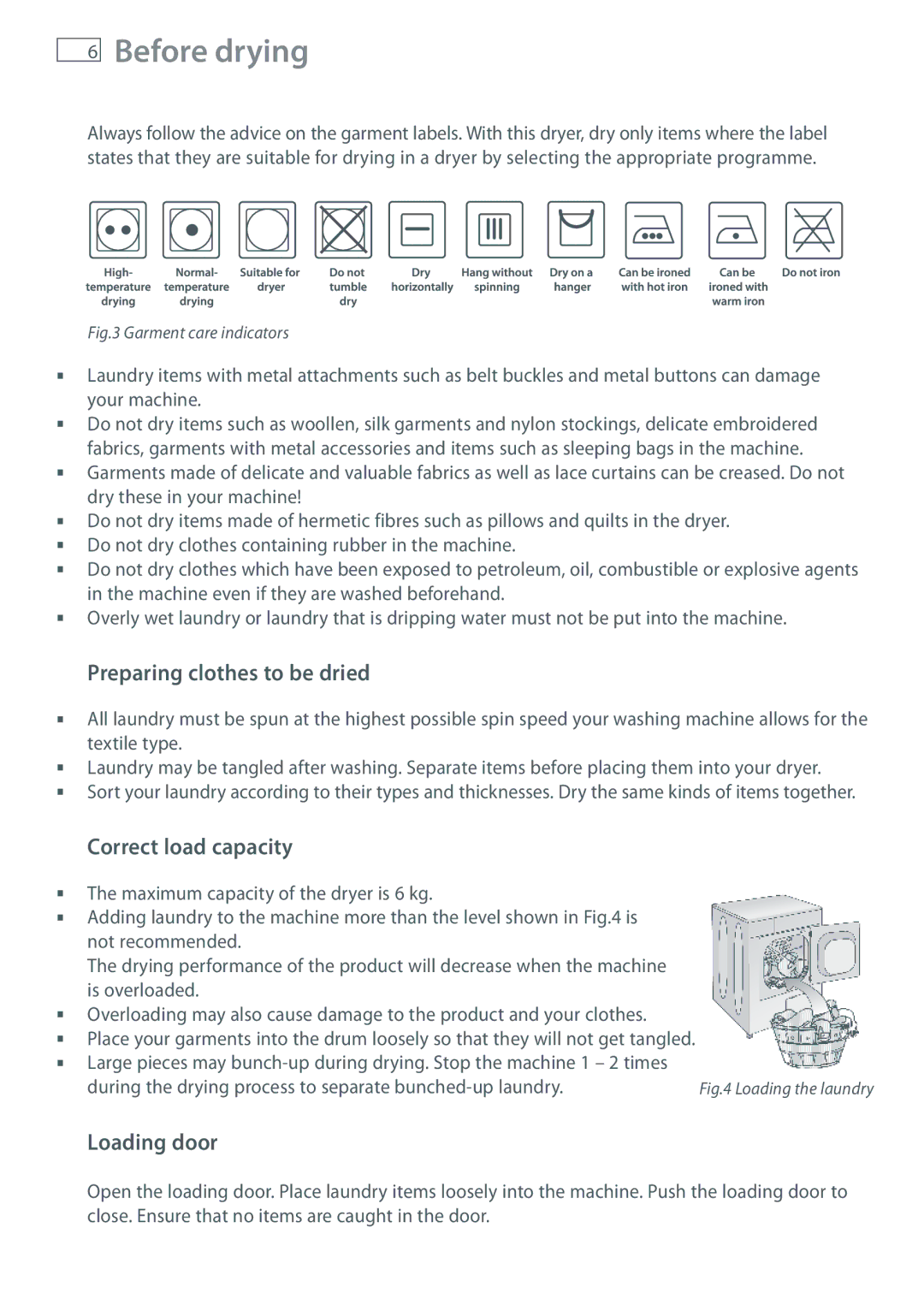
6
Before drying
Always follow the advice on the garment labels. With this dryer, dry only items where the label states that they are suitable for drying in a dryer by selecting the appropriate programme.
Fig.3 Garment care indicators
Laundry items with metal attachments such as belt buckles and metal buttons can damage your machine.
Do not dry items such as woollen, silk garments and nylon stockings, delicate embroidered fabrics, garments with metal accessories and items such as sleeping bags in the machine. Garments made of delicate and valuable fabrics as well as lace curtains can be creased. Do not dry these in your machine!
Do not dry items made of hermetic fibres such as pillows and quilts in the dryer. Do not dry clothes containing rubber in the machine.
Do not dry clothes which have been exposed to petroleum, oil, combustible or explosive agents in the machine even if they are washed beforehand.
Overly wet laundry or laundry that is dripping water must not be put into the machine.
Preparing clothes to be dried
All laundry must be spun at the highest possible spin speed your washing machine allows for the textile type.
Laundry may be tangled after washing. Separate items before placing them into your dryer. Sort your laundry according to their types and thicknesses. Dry the same kinds of items together.
Correct load capacity
The maximum capacity of the dryer is 6 kg. |
|
Adding laundry to the machine more than the level shown in Fig.4 is |
|
not recommended. |
|
The drying performance of the product will decrease when the machine |
|
is overloaded. |
|
Overloading may also cause damage to the product and your clothes. |
|
Place your garments into the drum loosely so that they will not get tangled. |
|
Large pieces may |
|
during the drying process to separate | Fig.4 Loading the laundry |
Loading door |
|
Open the loading door. Place laundry items loosely into the machine. Push the loading door to close. Ensure that no items are caught in the door.
